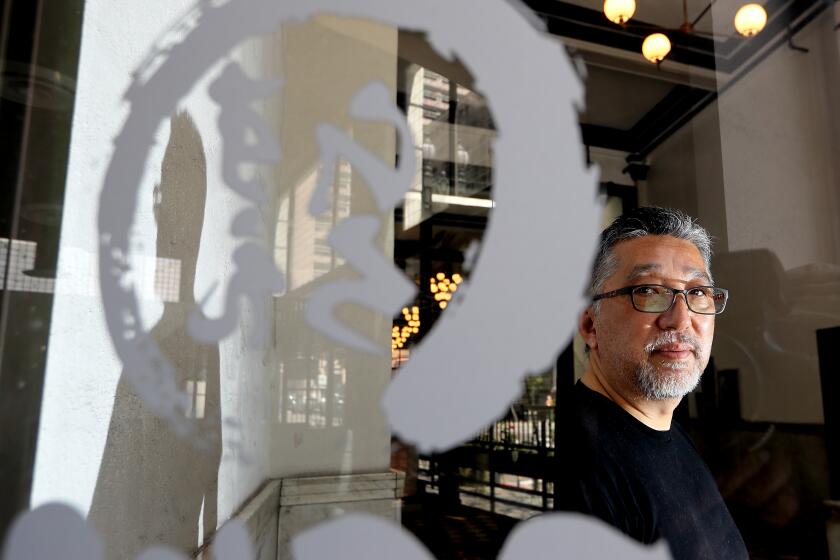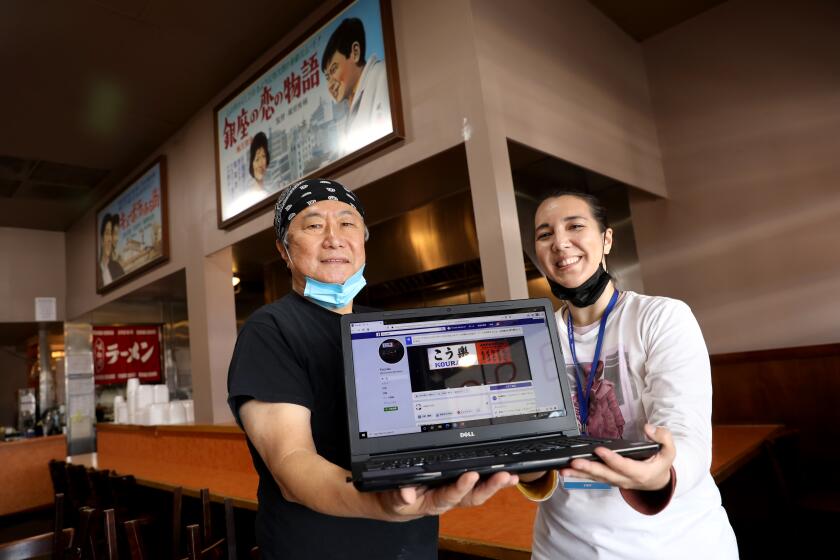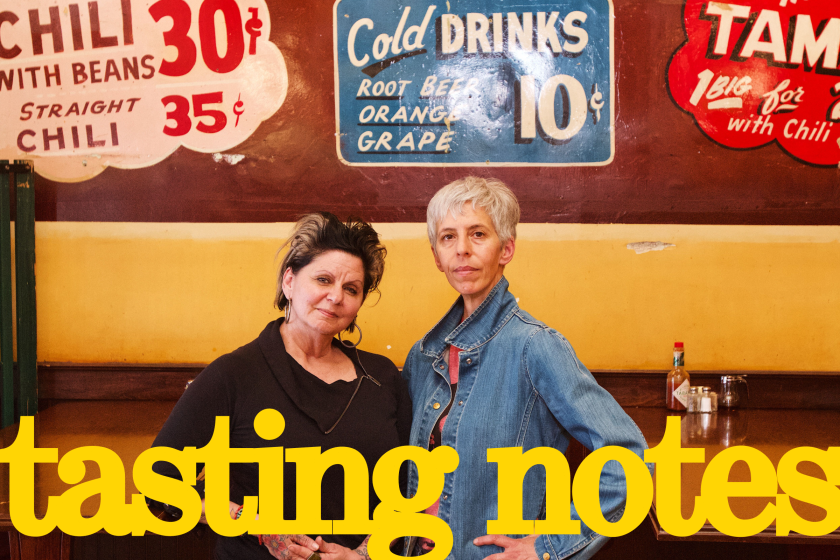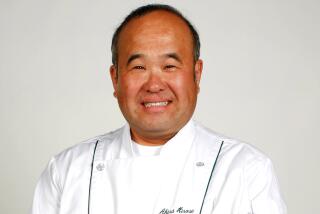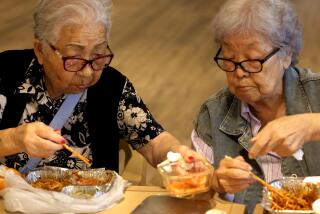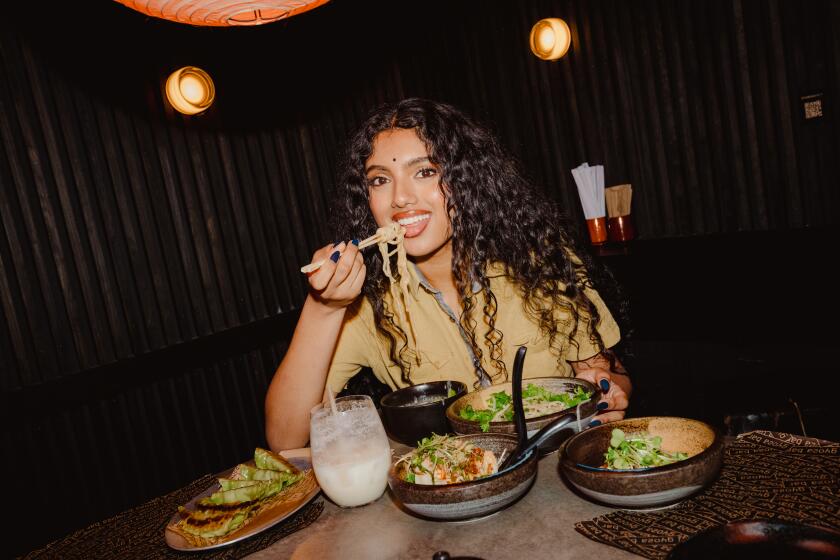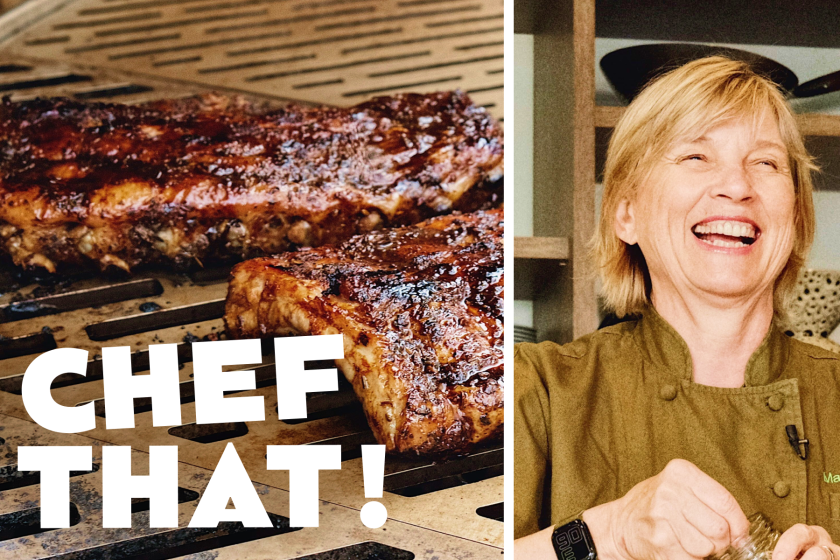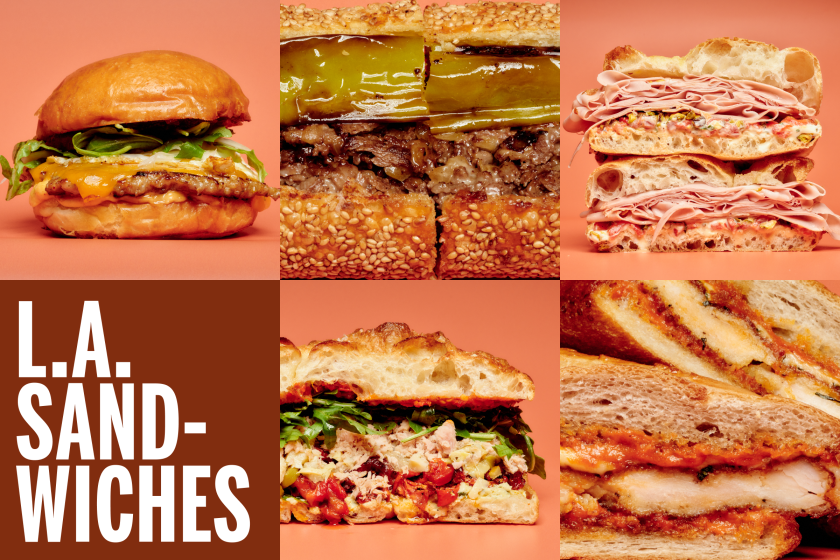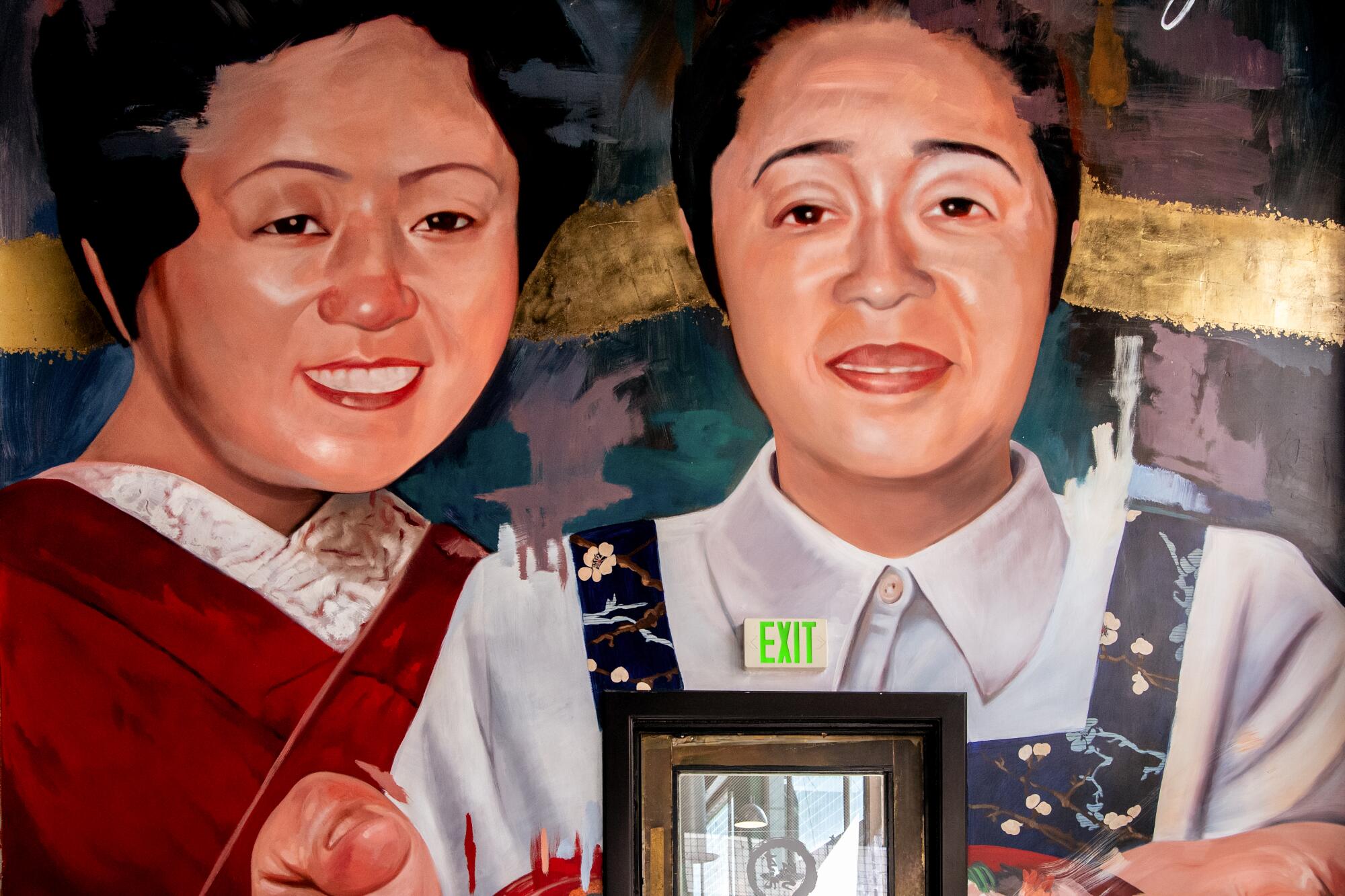
After more than half a century serving Little Tokyo — and more than 35 years in its iconic location — family-run Japanese restaurant Suehiro Cafe has moved to downtown’s Historic Core as it faces an eviction lawsuit. The suit and the cafe’s relocation are spurring community discussions over the future of legacy businesses in the historic Japanese American neighborhood.
The cafe, once called “a beloved, ancient dive” by Jonathan Gold, is now open in the sprawling former home of restaurant P.Y.T. at the base of the San Fernando Building on Main Street.
For second-generation owner Kenji Suzuki, the move ensures the legacy of his family is carried on, though it was never his intention, nor his hope, to leave Little Tokyo. An ongoing legal dispute with the cafe’s landlord forced Suzuki’s hand, leading to a phasing out of Suehiro’s longtime 1st Street location. It’s slated to close Oct. 1.
His parents and aunt founded Suehiro in 1972 in a building on 2nd Street, incorporating comforting Japanese classics into an American diner menu, before moving to 1st Street in the late 1980s.
At the new location, Suzuki hopes to eventually serve the full, comfort-focused menu of teriyaki, katsu and curry plates plus sashimi, sushi and ramen, but he’s launched with pared-down offerings.
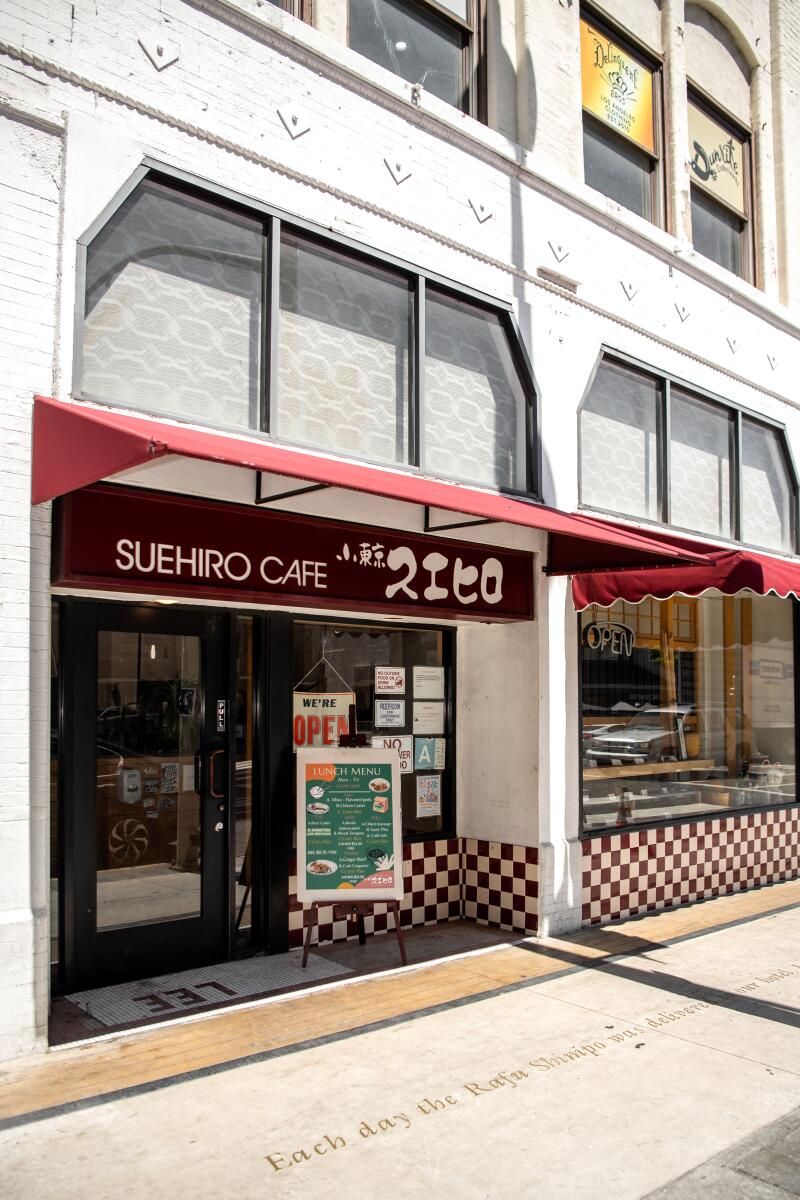
The exterior of Suehiro Cafe’s Little Tokyo storefront. (Mariah Tauger / Los Angeles Times)
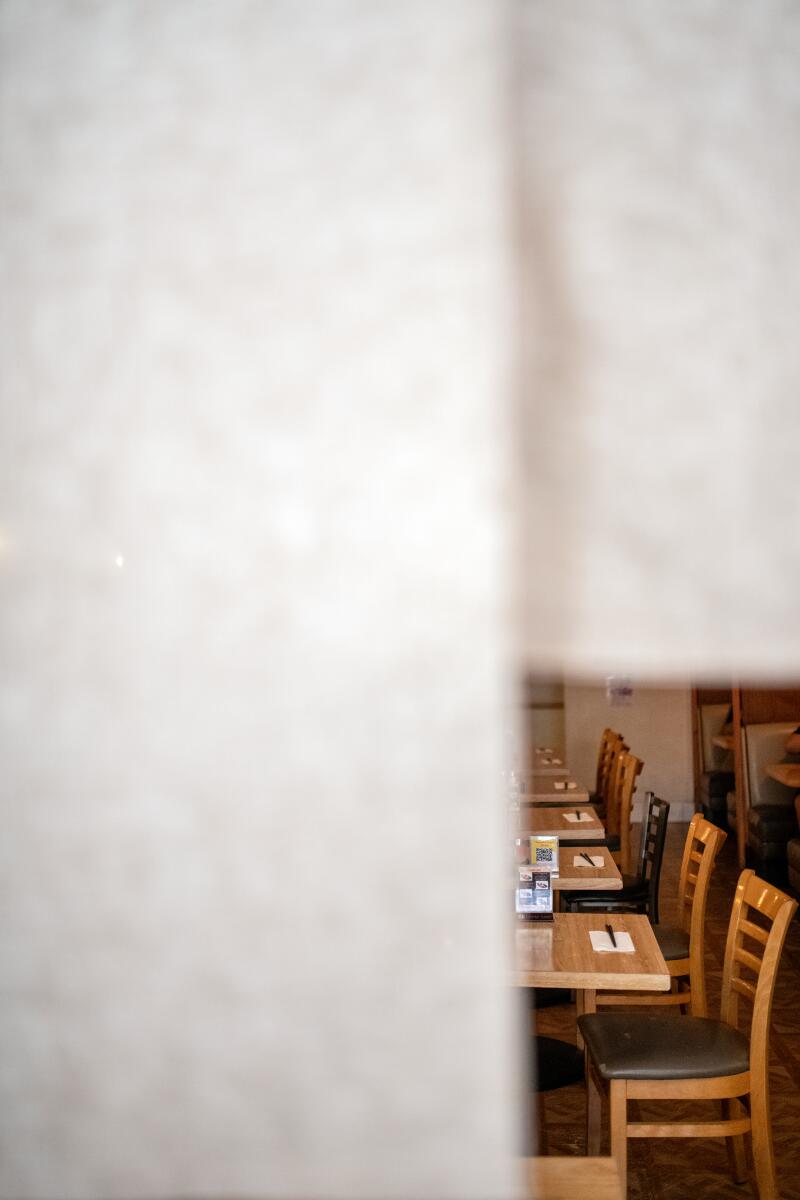
A look at the tables and chairs inside the old Suehiro Cafe. (Mariah Tauger / Los Angeles Times)
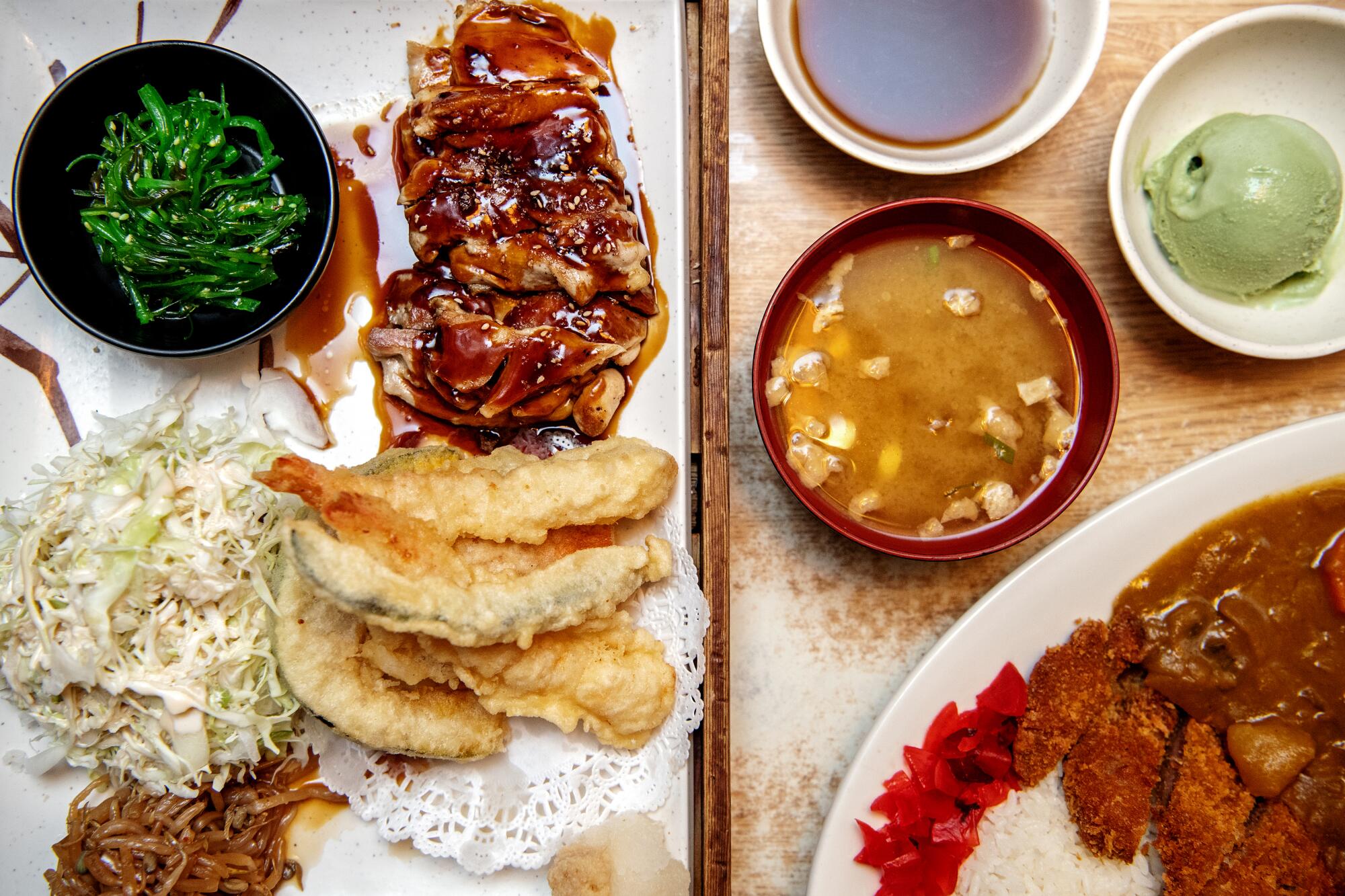
“I want to make sure that we don’t alienate our main customer base, because a lot of our customers knew my mother and my aunt,” he said of the opening menu. “We wanted to make sure that when they come in, there’s something that’s familiar about this place.”
Though the sampuru, or plastic, custom-made molds of Suehiro menu items still sit in the window of the Little Tokyo shop, Suzuki is considering placing them aloft in the new building as art pieces — creating a space that marries old and new and continuing the decades of tradition his parents and aunt founded.
Suehiro Cafe in downtown L.A.’s Little Tokyo is the latest legacy business falling to rail development and gentrification.
Suzuki said that after years of assurances that Suehiro’s landlord, Anthony Sperl, would renew a lease that was long out of contract, an eviction notice was filed in Los Angeles County Superior Court this spring. Months of legal filings and amended complaints have followed, and with them, concerns over Little Tokyo’s legacy businesses, like Suehiro, being pushed out as chain businesses and amenities such as new Metro stops contribute to rent hikes and evictions.
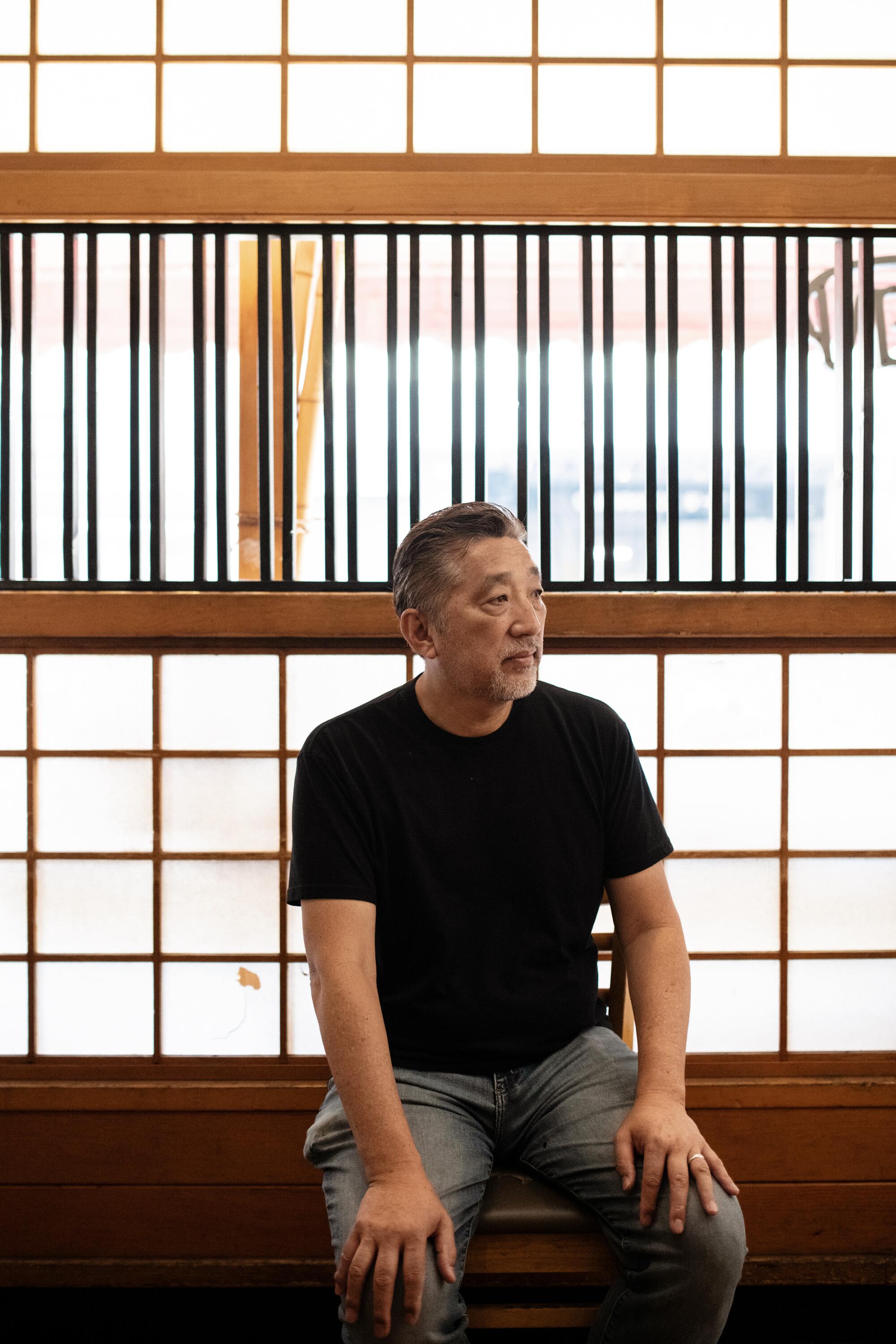
Neither Sperl nor his attorney, Dennis Block, responded to several requests for comment.
In May, Block told L.A. Times columnist Frank Shyong that Suzuki was being evicted due to nonpayment of rent. Suzuki and his attorney, Clifford Jung, maintain that Suehiro’s rent was paid in full and on time, but that the checks were never cashed. Only in the spring of 2023, after Sperl’s eviction notice and upon Jung’s advice, did Suzuki stop paying rent.
“This is a common strategy of landlords that say they don’t like a tenant,” Jung said. “They say, ‘OK, you pay the rent, but we’re not going to cash it,’ and they say, ‘Look, you’re not paying the rent.’ They use it to file the lawsuit to evict you, even though you pay. They don’t really care because they just want to evict you.”
Suzuki and Jung are still reviewing the case to determine whether there is cause to file their own claims against Sperl.
“A lot of people in the community don’t want me to just walk away,” said Suzuki. “We’ve been there for over 35 years, we’ve never missed a payment, we took care of his building — and now he wants us out because we didn’t want to just lay down for his shenanigans.”
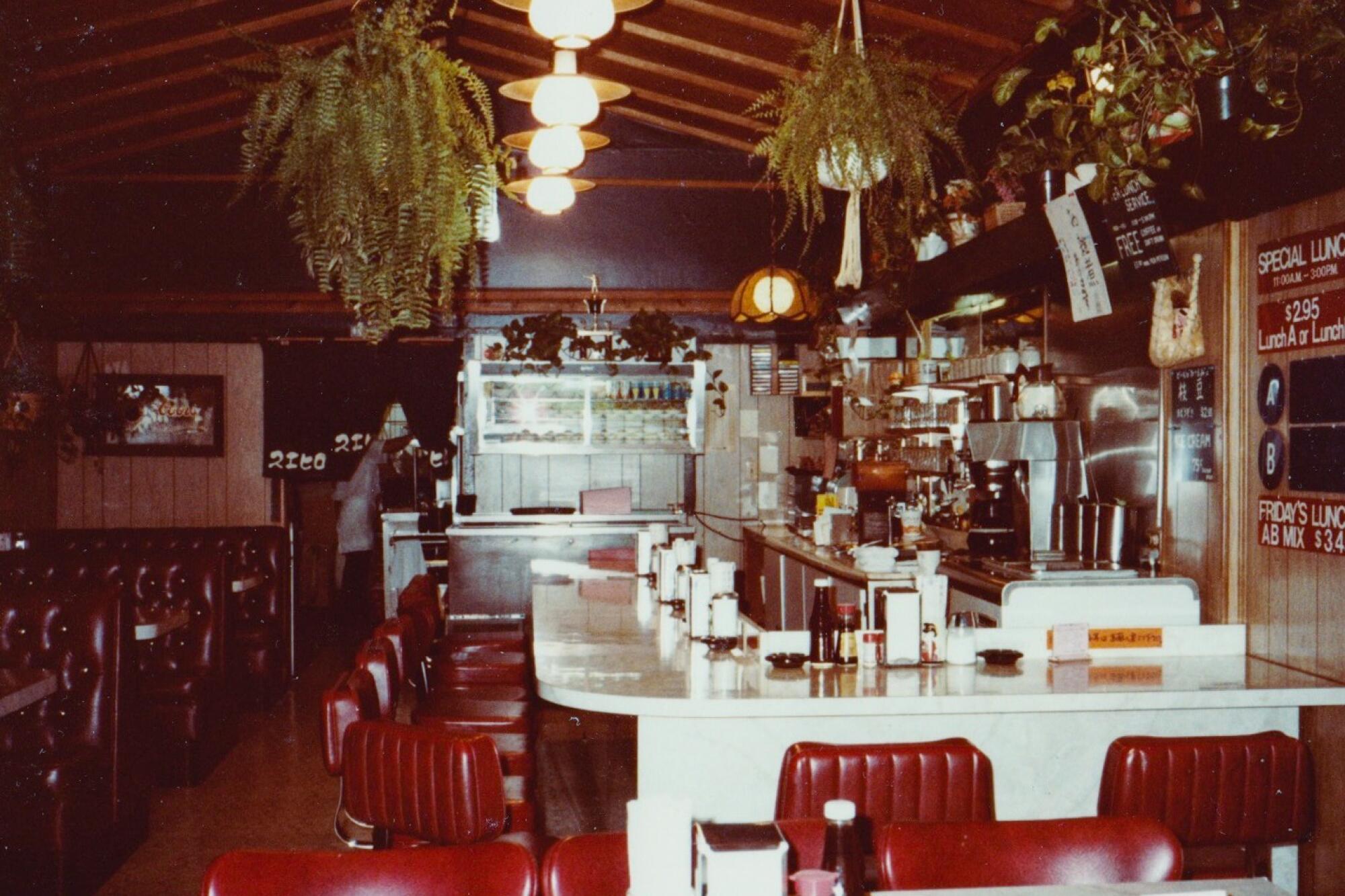
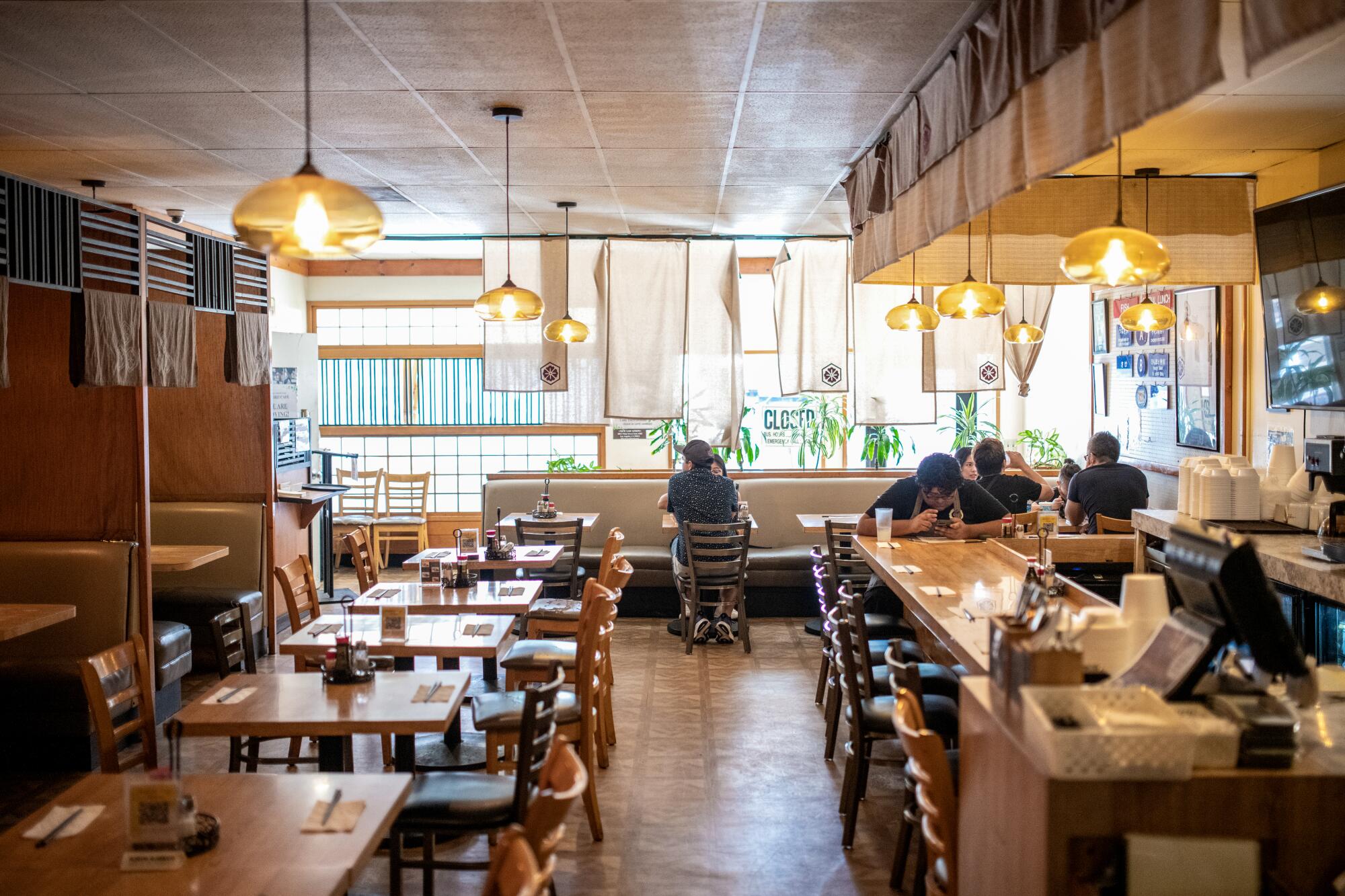
The eviction has ignited discussion of both legacy-business displacement and an unrelated incident involving Sperl, an ex-police officer, who in 1983 shot a 5-year-old boy after mistaking a toy gun for a real firearm. “We refuse to be silent as Little Tokyo vanishes before our eyes,” Little Tokyo community group J-Town action said in a passionate Instagram post spotlighting Sperl’s past.
Suehiro’s lease had expired more than a decade ago, according to Suzuki, who says his parents and Sperl’s parents negotiated the initial lease on 1st Street. Before the latest lease expired, the restaurateur says he had contacted Sperl repeatedly about renewing the contract and was reassured it was coming.
“You have been there for 34 year [sic], I am committed to keeping you,” Sperl wrote to Suzuki in a 2020 email reviewed by The Times. “Trust me, I have had offers for you [sic] place, but you are a solid to the neighborhood.”
Many Little Tokyo restaurants have operated for decades without much online presence. The pandemic has changed that, and Mariko Lochridge from the Little Tokyo Service Center is trying to bring them up to speed.
Suzuki says that once the MTA station’s renovation and reopening at a nearby street corner was confirmed, Sperl stopped answering in a positive way.
Suzuki said he did not receive any rental assistance from Sperl during the pandemic. The business was partially buoyed by PPP loans, a historic-preservation grant and Suehiro Mini, Suzuki’s intimate, takeout-focused location, which opened in a Chinatown strip mall in 2019 and continues to operate.
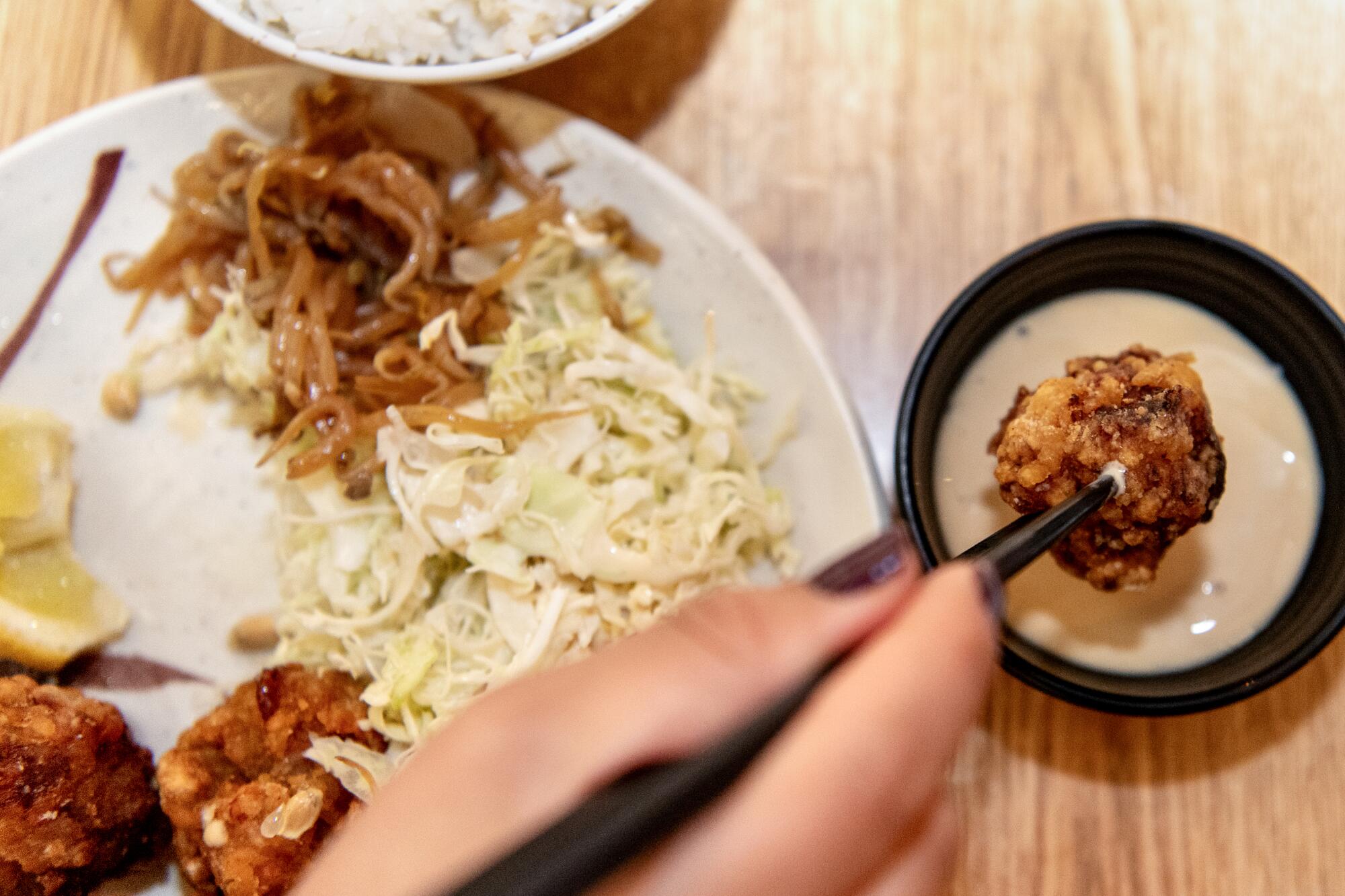
In order to renew the lease, Suzuki said Sperl requested a $100,000 renegotiation fee and also raised rent from $6,500 per month to $10,000, plus tacked on additional fees, which Suzuki said he paid in an effort to remain open in the space.
The pandemic and Sperl’s claims caused the team to reevaluate even prior to the eviction, and Suzuki began to consider letting the business go entirely. He had cashed out his retirement fund to keep Suehiro afloat — who was to say it would get better? He says the generational support from fans and providing for his employees kept him going. He began to look for a new location.
“A year from now I’m gonna be thanking our landlord for kicking us out: In my darkest hours that’s what I came up with to deal with the negative feelings that I have,” Suzuki said. “ It’s a difficult road, obviously. We haven’t been out of crisis mode ever since our original lockdown in 2020.”
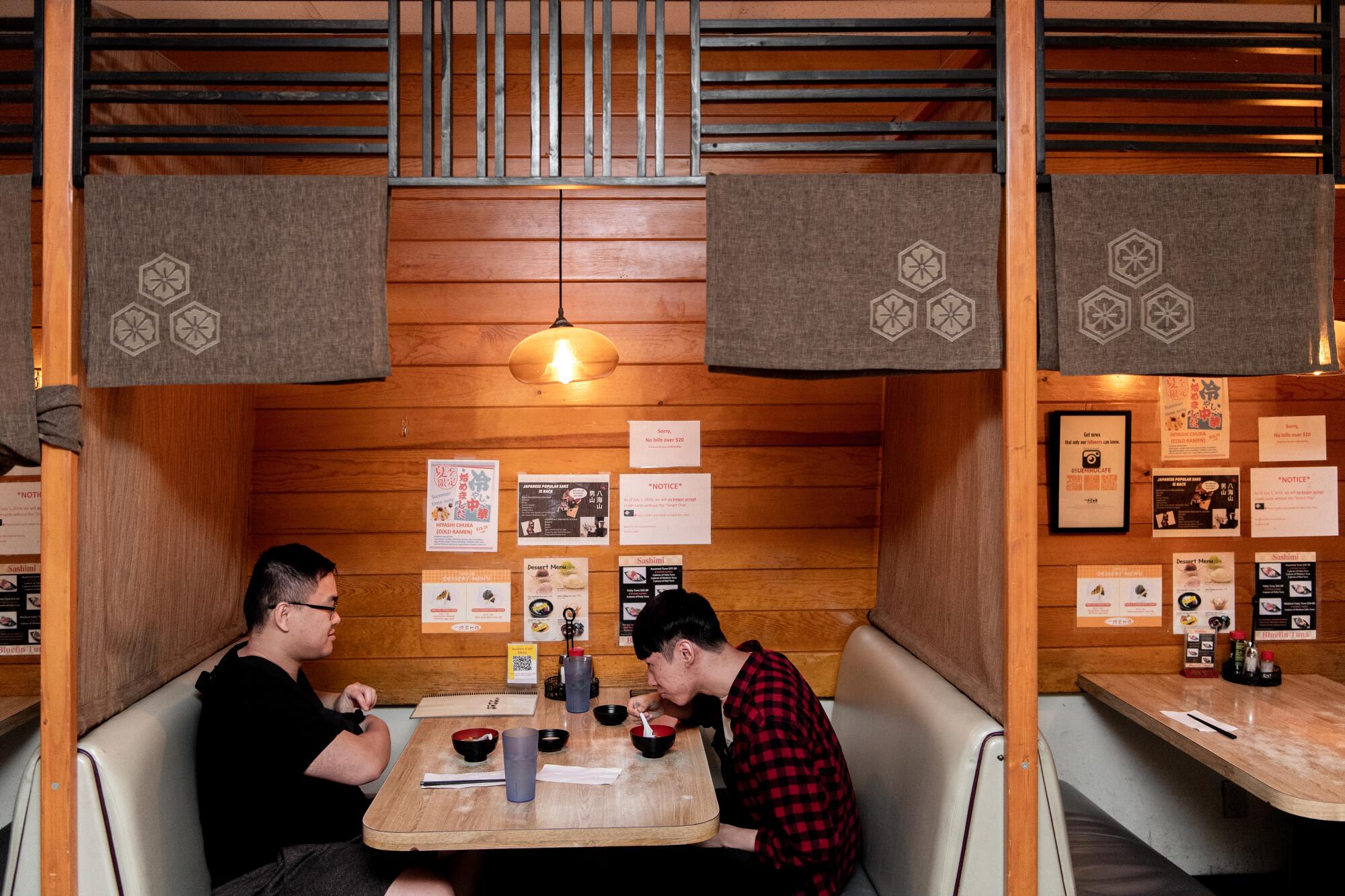
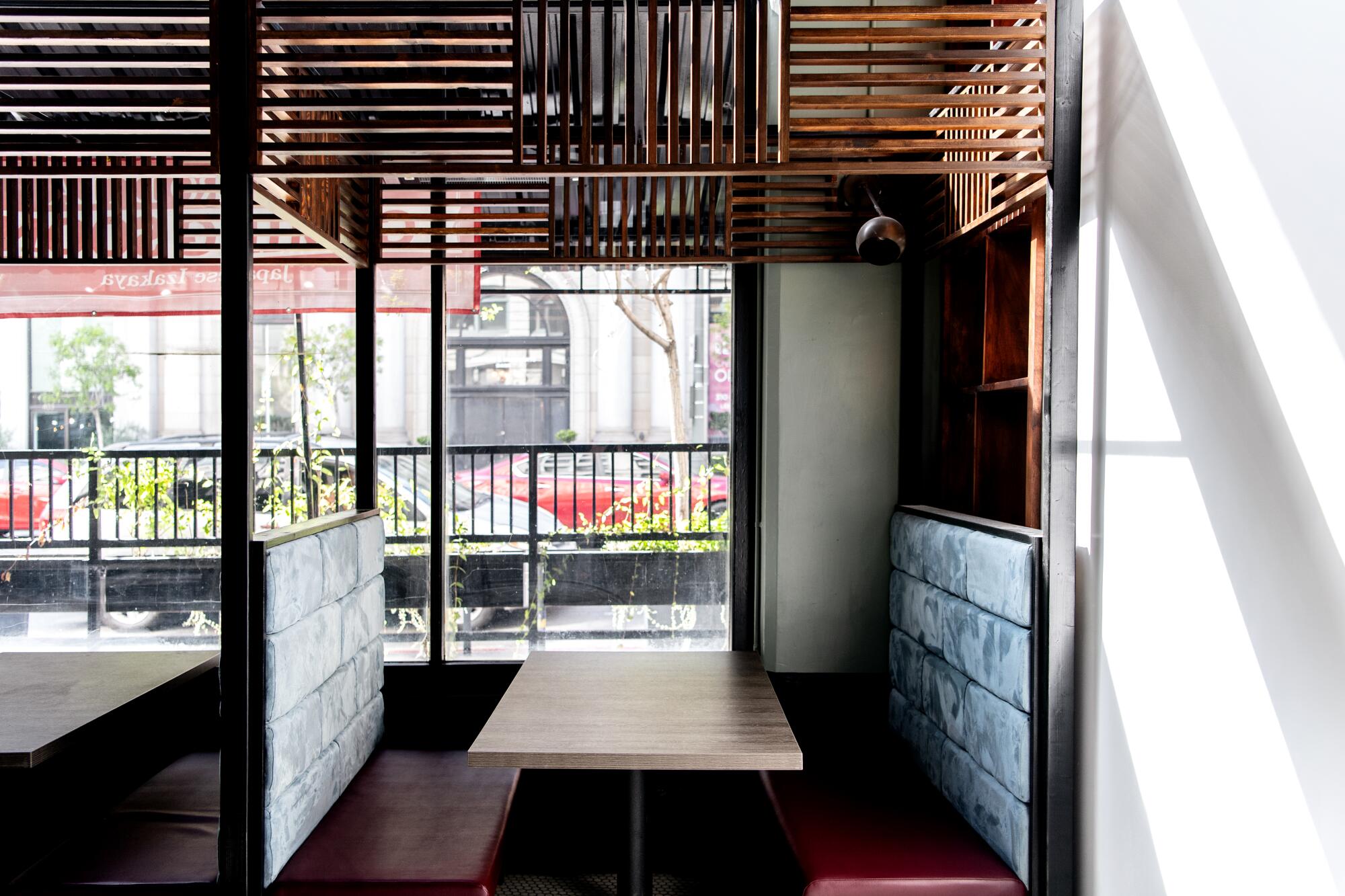
The downtown location was one of the first spaces he toured, but the restaurateur hoped to stay in Little Tokyo. An arrangement fell through, and he circled back to the now-home of Suehiro. In May 2022 he agreed to a lease with initial free rent — which helped to offset moving and legal costs during his restaurant’s transition. Suehiro soft-opened Sept. 12 with limited menu and hours, with a grand opening slated for November.
The 1st Street location serves four varieties of ramen, but downtown’s kitchen is roughly four times its size, and Suzuki expects to expand those and other offerings, such as increasing varieties of fish for sushi and sashimi; he’s also adding yakitori with the aid of a former employee of yakitori specialist Kokekokko.
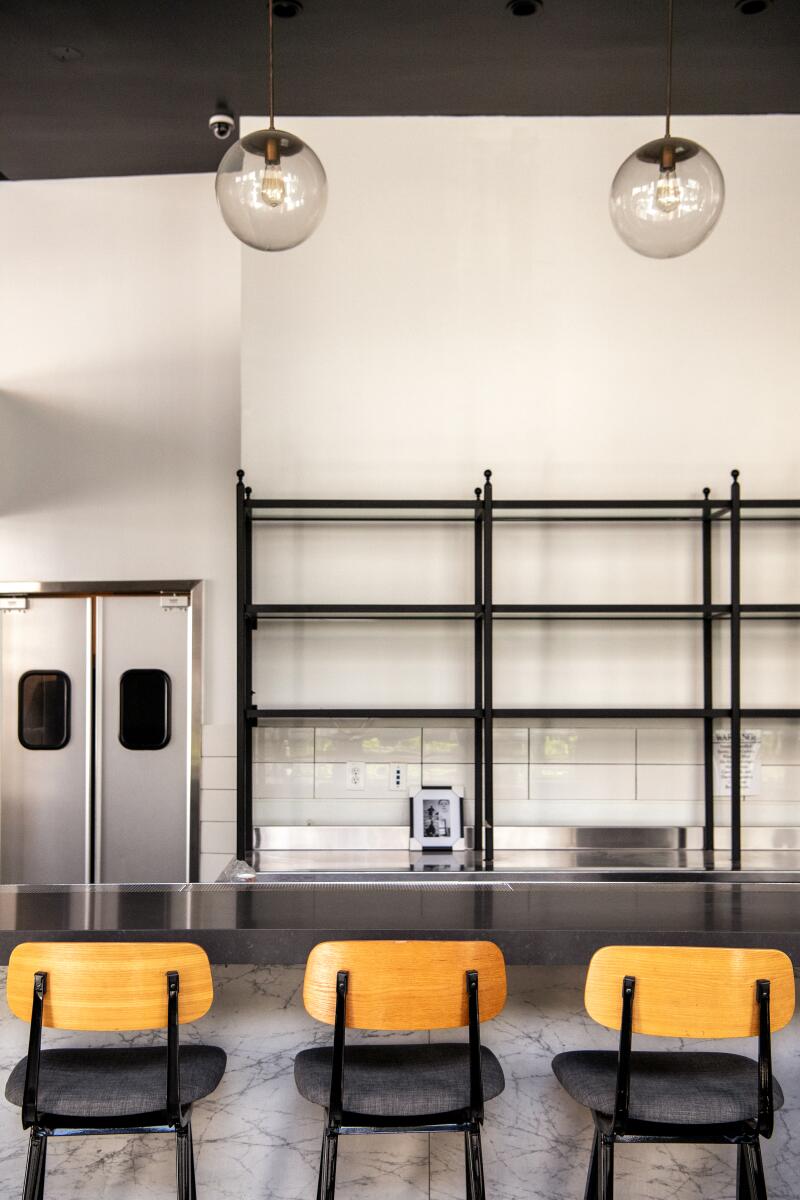
Inside the new location of Suehiro Cafe, which soft opened last week. (Mariah Tauger / Los Angeles Times)
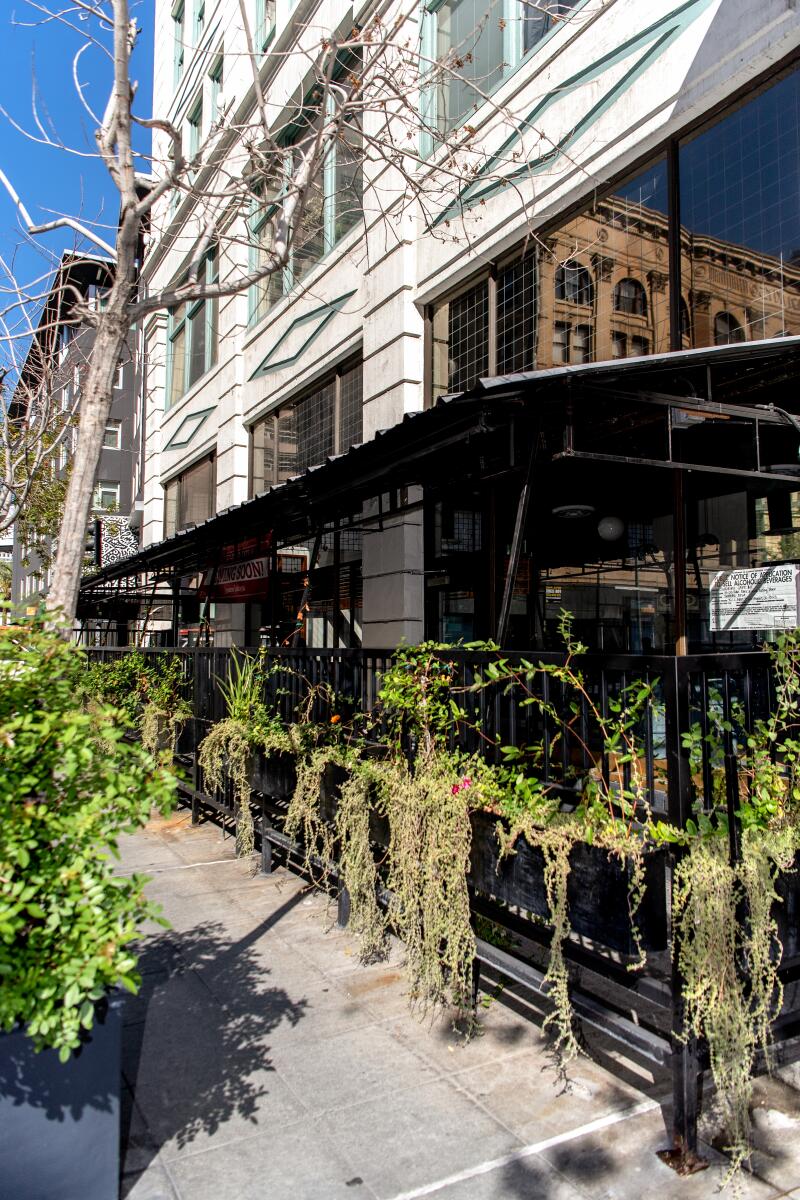
The exterior of Suehiro Cafe’s new location downtown. (Mariah Tauger / Los Angeles Times)
The restaurateur has applied for a beer and wine license in addition to liquor and plans to launch a daytime-only coffee and matcha bar in the future.
Though known for late hours, Suehiro is opening with a much-decreased schedule of three hours nightly. Over time, Suzuki hopes to run the restaurant until at least midnight and possibly later, should the neighborhood accommodate it.
The closure of Nickel Diner and forced move of Little Tokyo’s Suehiro Cafe will change the feel of downtown L.A.
Local artist Robert Vargas, a regular customer of Suehiro, painted a towering mural of the restaurant’s owner-operators over the interior front door: Suzuki’s mom, Junko Suzuki, on the right, his aunt, Yuriko Morita Regaert, on the left.
“I still don’t feel like Suehiro was my restaurant,” said Suzuki, who helped open the original 2nd Street location, where he spent his summer vacations washing dishes and prepping food. “I still feel like it’s my mother’s restaurant.”
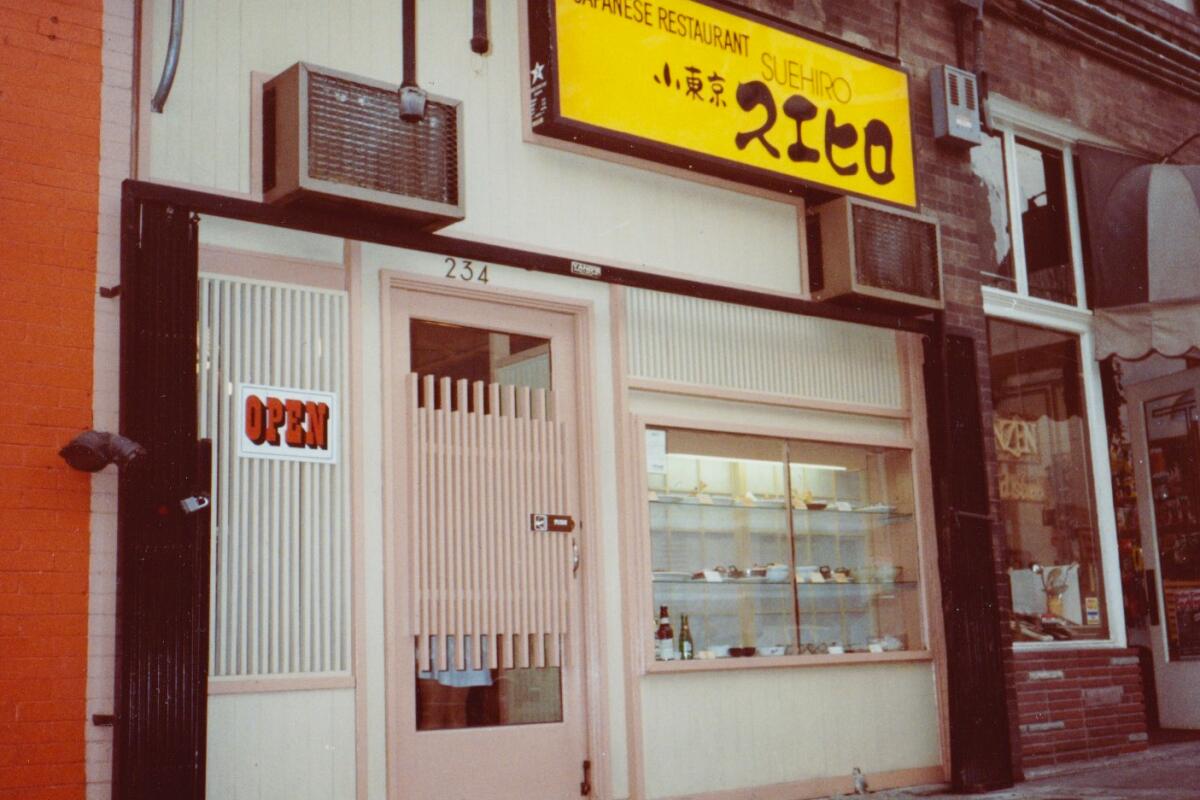
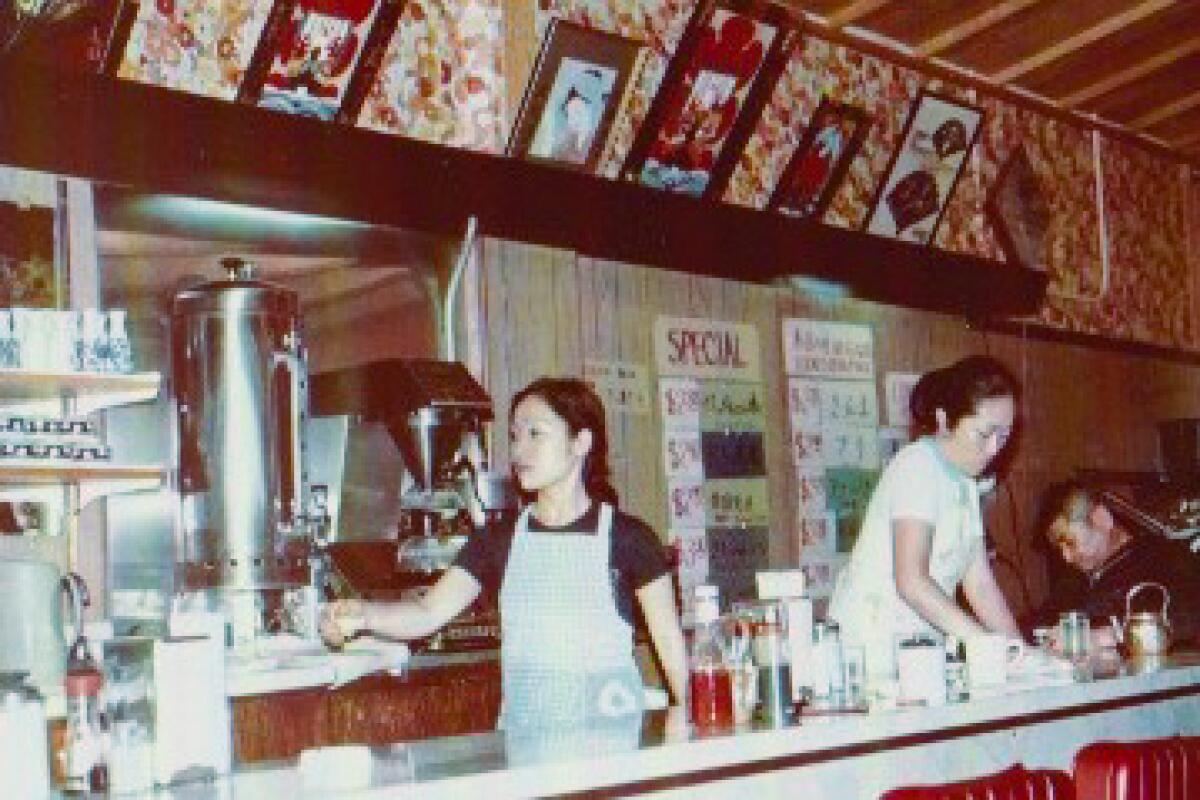
An exterior photo of the original Suehiro Cafe on 2nd Street. (Courtesy of Kenji Suzuki and Suehiro Cafe) In this family photo from the early 70’s, the staff at the Suehiro Japanese Restaurant in Little Tokyo serve their signature comfort food to patrons at the original location on Second Street between Los Angeles and San Pedro. (Courtesy of Kenji Suzuki and Suehiro Cafe)
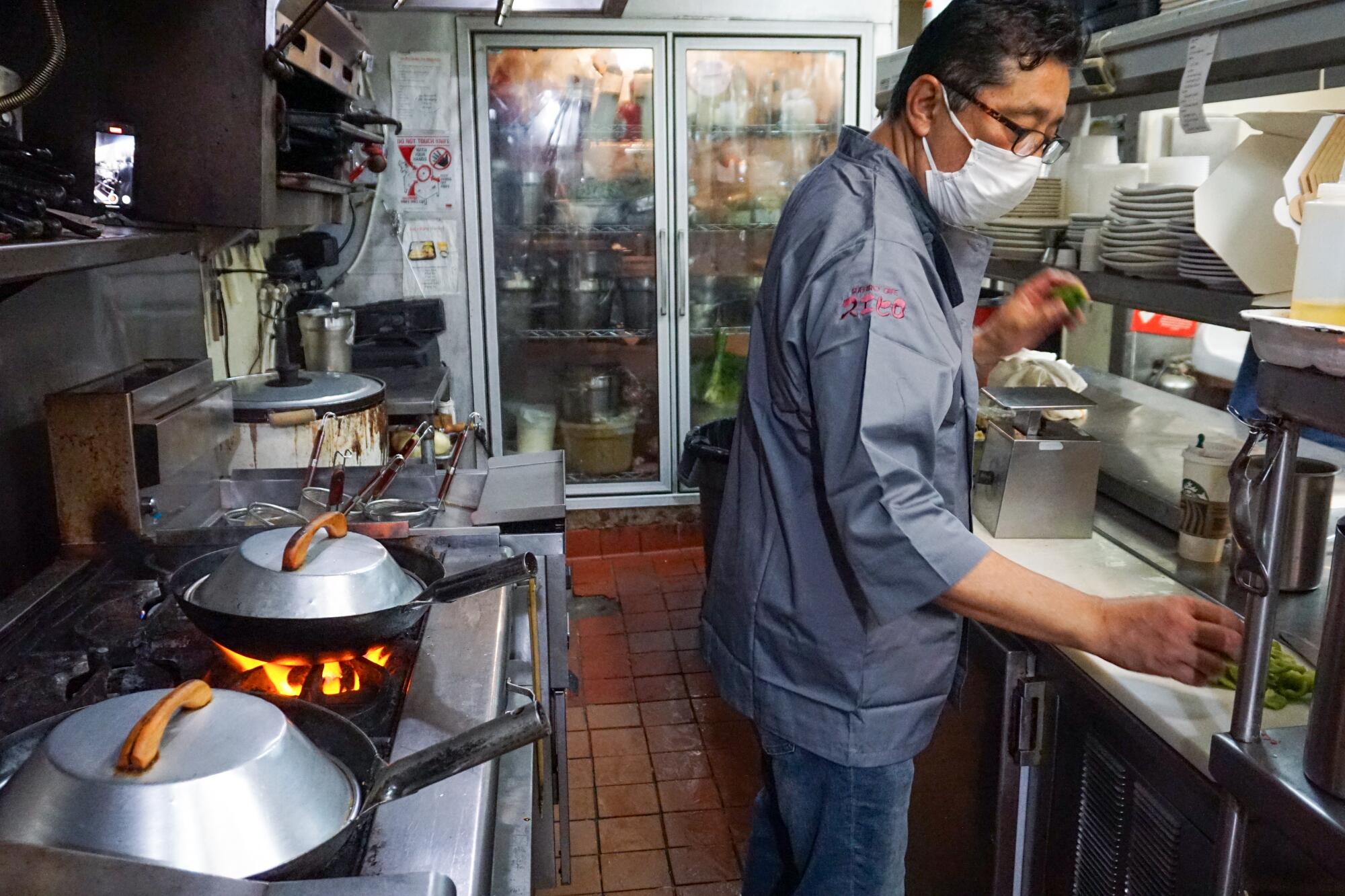
Countless guests have remarked on the Little Tokyo cafe’s cozy feel and cuisine throughout the decades. Jonathan Gold would dine regularly, almost always ordering the sanma: a whole fish grilled with salt and served simply with soy sauce and grated radish. Another regular, chess prodigy Bobby Fischer, never said much but would often order natto, fermented soybeans — at one point visiting as many as four or five times a week.
While Suzuki says he is thrilled to carry Suehiro’s tradition to downtown, he knows he will miss the neighborhood that his family’s restaurant served for more than half a century.
“A lot of memories are all over this place in Little Tokyo,” Suzuki said, “and all that kind of feels like you leave a piece of yourself there.”
Suehiro Cafe in Little Tokyo will close Oct. 1 and is located at 337 1st St., Los Angeles.
Suehiro is now open in downtown’s Historic Core at 400 S. Main St., Los Angeles, with soft-opening hours of 6 to 9 nightly. Call (213) 626-9132 for reservations.
Suehiro Mini remains open in Chinatown at 642 N. Broadway, Suite 5, Los Angeles.
More to Read
Eat your way across L.A.
Get our weekly Tasting Notes newsletter for reviews, news and more.
You may occasionally receive promotional content from the Los Angeles Times.
